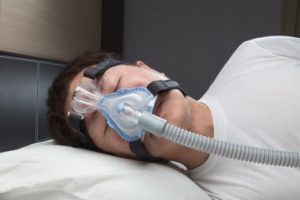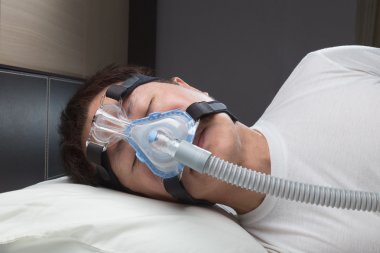People who suffer from allergies may suffer from a sore throat, nasal congestion, or a runny nose. Sneezing and itchy eyes are also common allergies that many people deal with every year.
People who suffer from allergies or sleep apnea can benefit significantly by using Continuous positive airway pressure (CPAP) masks. Without CPAP masks, sleep apnea sufferers may notice their sleep apnea worsen over time. Here, we will discuss how you can manage seasonal allergies with CPAP masks.
Causes of Seasonal Allergy
Pollen and hay fever can cause severe problems for those who suffer from allergies during the fall and spring. However, allergic reactions may vary depending on the person as well as where they live.
It is also possible for allergies to result from outdoor or indoor pollution. Also, while pollen is a common cause for many allergies, other factors can impact your sleep.
For example, latex and mould may make certain people sick during the fall and spring. Dust mites are yet another problem for some people, and pet owners should be wary of pet dander as well.
Allergies and Sleep
It is possible for allergies to have an impact on various aspects of sleep. For instance, people who suffer from allergic rhinitis are far more likely to suffer from chronic sleep issues. Left untreated, a person may become less productive at work and may even become depressed.
Allergies may cause significant discomfort during the night, which may keep you awake all night. They may also block your nasal ways, which may make it difficult to breathe during the night. Mucus can impede your nasal passageways and your throat while you sleep at night, which can be dangerous in some cases.
If you suffer from allergies, then the probability of developing sleep apnea over time will increase exponentially. Insomnia may result, and snoring can not only be dangerous but may also prevent your significant other from falling asleep as well.
Health Benefits of CPAP
A CPAP mask will help prevent snoring, which your loved ones will be very thankful for. Regular use of a CPAP machine may also reduce your risk of developing heart disease, stroke, and diabetes.
It may also reduce the risk of motor vehicle accidents; by boosting emotional stability, daytime alertness, as well as improving focus and concentration.
There is also the benefit of reduced medical expenses. Left untreated, seasonal allergies and sleep apnea will lead to more doctor or hospital visits, which means more treatments and medications.
Please speak to your doctor to determine if CPAP therapy is right for you.

CPAP For Seasonal Allergy Relief
CPAP can be of great benefit to those who suffer from seasonal allergies. If you already use a CPAP machine, then continue to do so. You should also ensure that your apparatus is clean by cleaning it on a routine basis.
Due to the additional secretions generated by allergies, you will need to be extra diligent to prevent bacterial growth. Otherwise, a bacterial infection may develop, which will require antibiotics to treat.
Fortunately, there are a few things that you can do that will not only reduce the severity of your seasonal allergies but will also help make you feel more relaxed.
1. Use a humidifier
The humidifier tank on your CPAP machine will be of great help to you while you are dealing with your seasonal allergies. If you have been using your humidifier for a prolonged period, you should clean it carefully with some warm water before using it.
You should follow the same cleaning routine if you have little to no experience using a CPAP humidifier. Also, always read the manufacturer’s instructions should you have any doubts or concerns about the unit.
You should also use a CPAP mask. When your nose becomes blocked, you will be forced to use your mouth for breathing. If your nose has become blocked, then perhaps you should avoid using a nasal CPAP mask. Instead, we would suggest that you use a full face CPAP mask instead, as you can enjoy all of its benefits.
2. Sanitize your CPAP machine
It is also vital that you disinfectant your supplies with a CPAP sanitizer. Your CPAP should be kept germ-free at all times. While allergies are bad enough, a contaminated CPAP can lead to many other health complications down the road.
Cold and allergy symptoms can also be very similar, such as suffering from a runny nose, watery eyes, or a sore throat. It is essential to take your temperature to determine if you have a fever, which is usually a sign of something more serious.
In any event, an easy way to reduce the risk of becoming ill is to clean your CPAP supplies regularly. By doing so, they will be kept free of irritants and bacteria that can make your allergies far more severe.
3. Replace your CPAP supplies
If you would like to maximize the benefits of your treatment and optimize your health, you should replace your CPAP supplies on a routine basis. In some cases, you may be eligible to receive replacement supplies via your insurance provider. Simply give them a call to verify your eligibility for new CPAP equipment. It is also possible to subscribe to a replacement plan, conveniently providing you with new supplies every month.
Managing Seasonal Allergies with CPAP
Do not allow allergies to take over your life. Sleep is an essential part of life and healthy living. Sleep apnea, combined with seasonal allergies, can make a person’s life a living nightmare if left untreated.
Certain seasonal allergies can also strike at any time and anywhere, so you need to take a proactive approach to your treatment. CPAP masks will help you get relief from your allergies and get a good night’s rest.
To learn more about managing your seasonal allergies with CPAP, contact your local CPAP supply company.
Author’s Bio:

Erin Gregory is a blogger in Toronto. She is currently working as a Community Manager for CPAP Outlet. She has graduated with honours from the University of British Columbia with a dual degree in Business Administration and Creative Writing.








